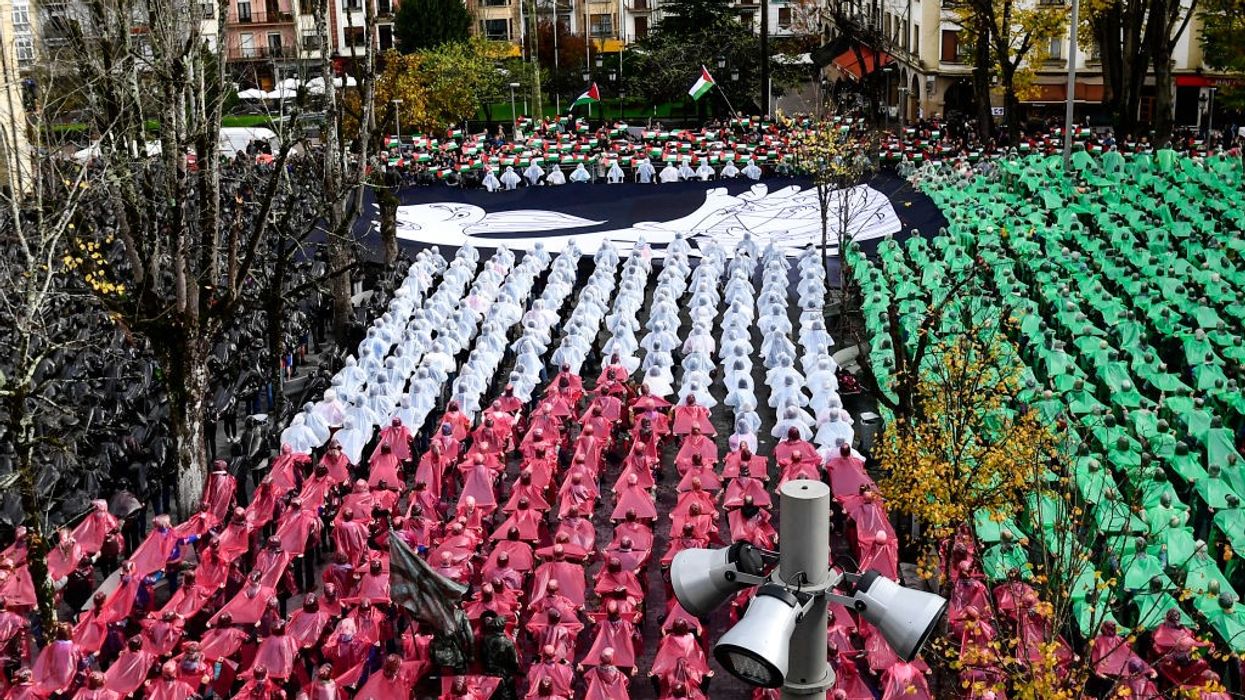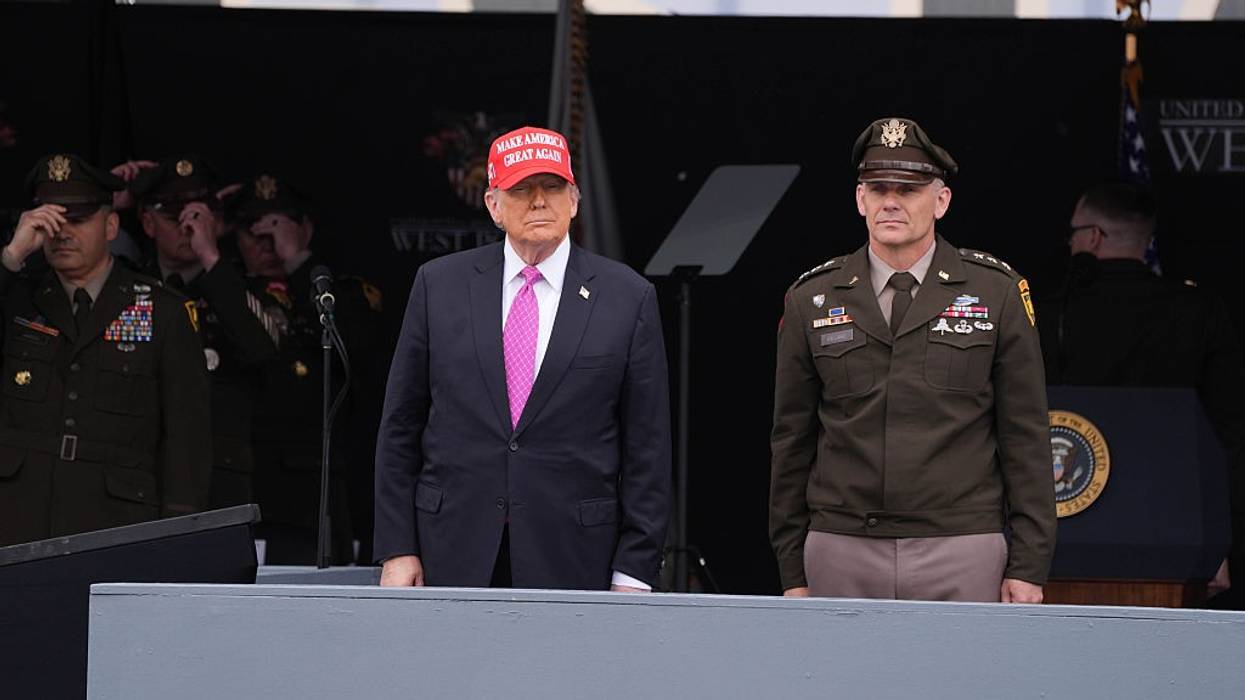Within weeks, Pablo Picasso’s painting “Guernica” was on public display, boosting global revulsion at such barbarism. When World War II began in September 1939, the default assumption was that bombing population centers—terrorizing and killing civilians—was beyond the pale. But during the next several years, such bombing became standard operating procedure.
Dispensed from the air, systematic cruelty only escalated with time. The blitz by Germany’s Luftwaffe took more than 43,500 civilian lives in Britain. As the Allies gained the upper hand, the names of certain cities went into history for their bomb-generated firestorms and then radioactive infernos. In Germany: Hamburg, Cologne, and Dresden. In Japan: Tokyo, Hiroshima, and Nagasaki.
“Between 300,000-600,000 German civilians and over 200,000 Japanese civilians were killed by allied bombing during the Second World War, most as a result of raids intentionally targeted against civilians themselves,” according to the documentation of scholar Alex J. Bellamy. Contrary to traditional narratives, “the British and American governments were clearly intent on targeting civilians,” but “they refused to admit that this was their purpose and devised elaborate arguments to claim that they were not targeting civilians.”
Past Atrocities Excusing New Ones
As the New York Times reported in October 2023, three weeks into the war in Gaza, “It became evident to US officials that Israeli leaders believed mass civilian casualties were an acceptable price in the military campaign. In private conversations with American counterparts, Israeli officials referred to how the United States and other allied powers resorted to devastating bombings in Germany and Japan during World War II—including the dropping of the two atomic warheads in Hiroshima and Nagasaki—to try to defeat those countries.”
Israeli Prime Minister Benjamin Netanyahu told then-US President Joe Biden much the same thing, while shrugging off concerns about Israel’s merciless killing of civilians in Gaza. “Well,” Biden recalled him saying, “you carpet-bombed Germany. You dropped the atom bomb. A lot of civilians died.”
Routine reverence for America’s high-tech arsenal of air power has remained in sync with the assumption that, in the hands of Uncle Sam, the world’s greatest aerospace technologies would be used for the greatest good.
Apologists for Israel’s genocide in Gaza have continued to invoke just such a rationale. Weeks ago, for instance, Mike Huckabee, the American ambassador to Israel, responded derisively to a statement by British Prime Minister Keir Starmer that “the Israeli government’s decision to further escalate its offensive in Gaza is wrong.” Citing the US-British air onslaught on Dresden in February 1945 that set off a huge firestorm, Huckabee tweeted: “Ever heard of Dresden, PM Starmer?”
Appearing on Fox & Friends, Huckabee said: “You have got the Brits out there complaining about humanitarian aid and the fact that they don’t like the way Israel is prosecuting the war. I would remind the British to go back and look at their own history. At the end of World War II they weren’t dropping food into Germany, they were dropping massive bombs. Just remember Dresden—over 25,000 civilians were killed in that bombing alone.”
The United Nations has reported that women and children account for nearly 70% of the verified deaths of Palestinians in Gaza. The capacity to keep massacring civilians there mainly depends on the Israeli Air Force (well supplied with planes and weaponry by the United States), which proudly declares that “it is often due to the IAF’s aerial superiority and advancement that its squadrons are able to conduct a large portion” of the Israeli military’s “operational activities.”
The “Grace and Panache” of the “Indispensable Nation”
The benefactor making possible Israel’s military prowess, the US government, has compiled a gruesome record of its own in this century. An ominous undertone, foreshadowing the unchecked slaughter to come, could be heard on October 8, 2023, the day after the Hamas attack on Israel resulted in close to 1,200 deaths. “This is Israel’s 9-11,” the Israeli ambassador to the United Nations said outside the chambers of the Security Council, while the country’s ambassador to the United States told PBS viewers that “this is, as someone said, our 9-11.”
Loyal to the “war on terror” brand, the American media establishment gave remarkably short shrift to concerns about civilian deaths and suffering. The official pretense was that (of course!) the very latest weaponry meshed with high moral purpose. When the US launched its “shock and awe” air assault on Baghdad to begin the Iraq War in March 2003, “it was a breathtaking display of firepower,” anchor Tom Brokaw told NBC viewers with unintended irony. Another network correspondent reported “a tremendous light show here, just a tremendous light show.”
As the US occupation of Iraq took hold later that year, New York Times correspondent Dexter Filkins (who now covers military matters for The New Yorker) was laudatory on the newspaper’s front page as he reported on the Black Hawk and Apache helicopter gunships flying over Baghdad “with such grace and panache.” Routine reverence for America’s high-tech arsenal of air power has remained in sync with the assumption that, in the hands of Uncle Sam, the world’s greatest aerospace technologies would be used for the greatest good.
In a 2014 commencement speech at West Point, then-US President Barack Obama proclaimed: “The United States is and remains the one indispensable nation. That has been true for the century passed and it will be true for the century to come.”
After launching two major invasions and occupations in this century, the United States was hardly on high moral ground when it condemned Russia for its invasion of Ukraine in February 2022 and frequent bombing of that country’s major cities. Seven months after the invasion began, Russian President Vladimir Putin tried to justify his reckless nuclear threats by alarmingly insisting that the atomic bombings of Japan had established a “precedent.”
Whoever Doesn’t Count Goes Uncounted
Journalist Anand Gopal, author of the brilliant book No Good Men Among the Living, spent years in Afghanistan after the US invasion of that country, often venturing into remote rural areas unvisited by Western reporters. While US media outlets were transfixed with debating the wisdom of finally withdrawing troops from that country in August 2021 and the flaws in the execution of the departure, Gopal was rendering a verdict that few in power showed the slightest interest in hearing: The US war effort in Afghanistan had involved the large-scale killing of civilians from the air, and civilian deaths had been “grossly undercounted.”
In Helmand Province (“really the epicenter of the violence for the last two decades”), Gopal investigated what had happened to the family of a housewife named Shakira, who lived in the small village of Pan Killay. As he explained during a DemocracyNow! interview, she had lost 16 members of her family. “What was remarkable or astonishing about this was that this wasn’t in one airstrike or in one mass casualty incident,” he pointed out. “This was in 14 or 15 different incidents over 20 years.” He added:
So, people were living—reliving tragedy again and again. And it wasn’t just Shakira, because I was interested, after interviewing her, to see how representative this was. So, I managed to talk to over a dozen families. I got the names of the people who were killed. I tried to triangulate that information with death certificates and other eyewitnesses. And so, the level of human loss is really extraordinary. And most of these deaths were never recorded. It’s usually the big airstrikes that make the media, because in these areas there’s not a lot of internet penetration, there’s not—there’s no media there. And so, a lot of the smaller deaths of ones and twos don’t get recorded. And so, I think we’ve grossly undercounted the number of civilians who died in this war.
Citing a UN study of casualties during the first half of 2019, the BBC summed up the findings this way: “Some 717 civilians were killed by Afghan and US forces, compared to 531 by militants… Air strikes, mostly carried out by American warplanes, killed 363 people, including 89 children, in the first six months of the year.”
During my brief trip to Afghanistan 10 years earlier, I had visited the Helmand Refugee Camp District 5 on the outskirts of Kabul, where I met a 7-year-old girl named Guljumma. She told me about what had happened one morning the previous year when she was sleeping at her home in southern Afghanistan’s Helmand Valley. At about 5:00 am local time, the US Air Force dropped bombs. Some people in her family died. She lost an arm.
As Guljumma spoke, several hundred people were living under makeshift tents in the refugee camp. Basics like food arrived only sporadically. Her father, Wakil Tawos Khan, told me that the sparse incoming donations were from Afghan businessmen, while little help came from the government of Afghanistan. And the United States was offering no help whatsoever. The last time Guljumma and her father had meaningful contact with the US government was when its air force bombed them.
Normal and Lethal
When Shakira and Guljumma lost relatives to bombs that arrived courtesy of the US taxpayer, their loved ones were not even numbers to the Pentagon. Instead, meticulous estimates have come from the Costs of War project at Brown University, which puts “the number of people killed directly in the violence of the post-9-11 wars in Afghanistan, Pakistan, Iraq, Syria, Yemen, and elsewhere” at upwards of 905,000—with 45% of them civilians. “Several times as many more have been killed as a reverberating effect of the wars—because, for example, of water loss, sewage and other infrastructural issues, and war-related disease.”
The increasing American reliance on air power rather than combat troops has shifted the concept of what it means to be “at war.” After three months of leading NATO’s bombing of Libya in 2011, for instance, the US government had already spent $1 billion on the effort, with far more to come. But the Obama administration insisted that congressional approval was unnecessary since the United States wasn’t actually engaged in military “hostilities”—because no Americans were dying in the process.
The daily horrors in Gaza still echo the day when bombs fell on Guernica.
The State Department’s legal adviser, former Yale Law School dean Harold H. Koh, testified at a hearing of the Senate Foreign Relations Committee that the nation’s actions targeting Libya involved “no US ground presence or, to this point, US casualties.” Nor was there “a threat of significant US casualties.” The idea was that it’s not really a war if Americans are above it all and aren’t dying. In support of Koh, a former colleague at the Yale Law School, Akhil Reed Amar, claimed that the United States truly wasn’t engaged in “hostilities” in Libya because “there are no body bags” of American soldiers.
Ten years later, in a September 2021 speech at the United Nations soon after the last American troops had left Afghanistan, President Biden said: “I stand here today, for the first time in 20 years, with the United States not at war.” In other words, American troops weren’t dying in noticeable numbers. Costs of War project codirector Catherine Lutz pointed out in the same month that US engagement in military actions “continues in over 80 countries.”
Seeking to reassure Americans that the Afghanistan withdrawal was a matter of repositioning rather than a retreat from the use of military might, Biden touted an “over-the-horizon capability that will allow us to keep our eyes firmly fixed on any direct threats to the United States in the region and to act quickly and decisively if needed.” During the four years since then, the Biden and Trump administrations have directly sent bombers and missiles over quite a few horizons, including in Yemen, Iraq, Syria, Somalia, and Iran.
Less directly, but with horrific ongoing consequences, stepped-up US military aid to Israel has enabled its air power to systematically kill Palestinian children, women, and men with the kind of industrial efficiency that fascist leaders of the 1930s and 1940s might have admired. The daily horrors in Gaza still echo the day when bombs fell on Guernica. But the scale of the carnage is much bigger and unrelenting in Gaza, where atrocities continue without letup, while the world looks on.




